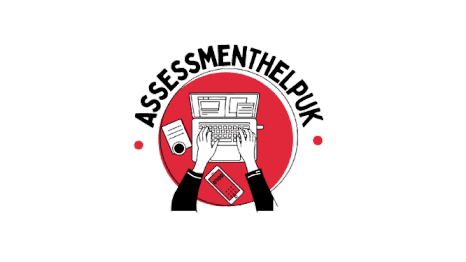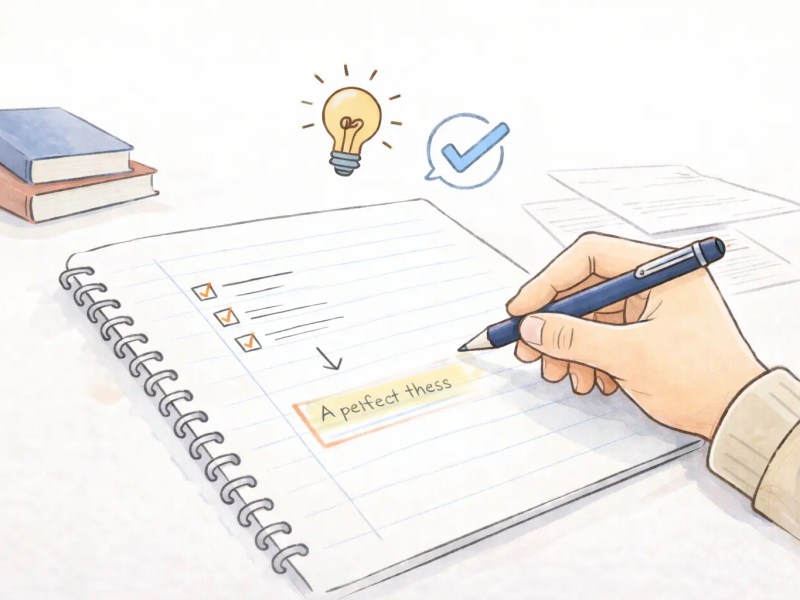A dissertation is among the most important academic tasks that a student may ever undertake. Not to mention months of research and many hours spent writing, the last thing you want is to lose marks because of some common dissertation writing mistakes that could have been avoided. However, there are traps in which a number of students keep on falling. In this blog post we are going to discuss the top 5 mistakes that are generally seen in writing a dissertation and how you can prevent them to make sure that your work is noticed due to all the right reasons.
1. Absence of a Focused Research Question or Objective
The Issue:
Among the dissertation writing problems that are of utmost importance is the inability to specify a clear and focused research question. Without a solid, guiding question, a dissertation tends to become weak, meandering, or even too general. This ambiguity means that it is not clear to readers (or even reviewers) what you are attempting to do and what the relation of your work is to your academic discipline. It may also cause disproportionate methodology, out of context literature and contradictory arguments- key dissertation mistakes that should be avoided.
How to Avoid It:
· Take the time to develop one focused and researchable question: It is not enough to make your research question interesting; you also need to make it doable given the time and resources that you have available. It is important to avoid the questions that are too broad or cannot be answered using the available information.
· Make sure your aims coincide with your method: All of your chapters, arguments and pieces of evidence must relate directly to your overarching aim. This serves to keep things focused and united in your dissertation.
· Consulting your advisor early: Talk to your supervisor before you commit to your question and present your draft ideas. Their experience will be able to narrow your focus and help you have an academically viable question.
2. Poor Literature Review
The Issue:
One of the many pitfalls in dissertation is to end up with a literature review that is too narrow, too general or merely a list of summaries that have not been synthesized. When the literature review is poor, it will not show that you understand the current research situation and therefore your work may appear ignorant or un-academic.
How to Avoid It:
· Conduct a succinct overview of current, pertinent sources: Don t settle with the initial search results on Google Scholar. Immerse yourself in peer-reviewed journals, scholarly books, and current research in your area.
· Map your review: Plan how you will organize your review to bring out certain trends, gaps and main debates in the findings. This assists the readers to trace the development of thinking in your field of study.
· Analyze sources, do not merely summarize them: Note limitations and contradictions, and say what further research is needed. Demonstrate how your study addresses a gap or expands on previous work.
3. Inadequate time management
The Issue:
To a large number of students, procrastination or unrealistic planning is a trap. It is one of the most typical dissertation writing errors to underestimate the duration of each step of the dissertation process. This usually results in haste writing, deadline overlooked and shallow analysis.
How to Avoid It:
· Make a workable schedule: Divide your dissertation into small, feasible parts such as research, writing, editing etc. and give each part a deadline.
· Begin writing immediately even in the form of rough drafts: This will assist in crystallizing your ideas and will keep you on track. Do not wait to have all the data in order to start writing.
· Allow sufficient time to account towards revisions and feedback: Allot time towards several rounds of revisions. Use the comments of your advisor or colleagues to add quality.
4. Neglecting Formatting and Citation Guide
The Issue:
A lot of students do not think much about correct formatting and references. Yet, neglecting such technicalities may lead to some serious dissertation writing problems such as grade deduction and worse still, charges of academic dishonesty.
How to Avoid It:
· Familiarize yourself with the formatting guide of your university: Every university has certain specifications in terms of font, margins, line spacing and style of references. Ensure that your document is totally compliant.
· Take advantage of citation management tools: Zotero, Mendeley or EndNote are simpler to use when it comes to adding citations, organizing sources and creating bibliographies automatically.
· Reference proofread and looks for consistency: Even when using citation tools, never trust twice. Irregularities in formatting (e.g. varying typing of the names of authors or dates) may impact the credibility.
5. Lack of Proofreading and editing
The Issue:
Many students are eager to submit a dissertation immediately after months of working on it. Nevertheless, not proofreading and editing your work in a proper way can be called one of the most harmful errors in thesis writing. Spelling mistakes, grammar and ambiguous sentences may draw attention away from your points and undermine what you are saying.
How to Avoid It:
· Make breaks between editing to look at what you have written with fresh eyes: A break in between drafts allows you to identify errors that you might have missed earlier.
· Run it through a grammar-checker, such as Grammarly or Hemingway: Passive voice, long sentences, and simple grammar errors may be identified with the assistance of these tools.
· Request a peer review or professional editor to look at your work: Follow the second pair of eyes to identify errors and offer an objective opinion regarding clarity and organization.
Conclusion
By steering clear of these typical errors when undertaking a dissertation project, you can vastly increase the standards of your final project. Whether it is formulating a crisp research question or careful proofreading, each step is important. Early identification and prevention of these dissertation writing mistakes will not only save your time and repair your nerves but also academically enrich your work.
Your dissertation will represent all your hard work, research and learning- do not let minor, preventable errors bring you down.
FAQs: Common Dissertation Pitfalls
Q1: What is the mistakes students make most often when writing a dissertation?
A: One of the commonest dissertation writing problems is failure to outline a concise research question or objective.
Q2: What is the relevance of editing and proofreading?
A: Very essential. The result of bad editing is a lack of clarity, grammatical errors and a misunderstanding of your thoughts.
Q3: Is it possible to commit plagiarism because of citation errors?
A: Yes. Wrong or absent citations are severe dissertation mistakes to avoid because they might lead to inadvertent plagiarism.
Q4: What are some tips on managing time to do a dissertation?
A: Take advantage of project management software or planners, divide your work into milestones, and do not leave writing to the last minute.



